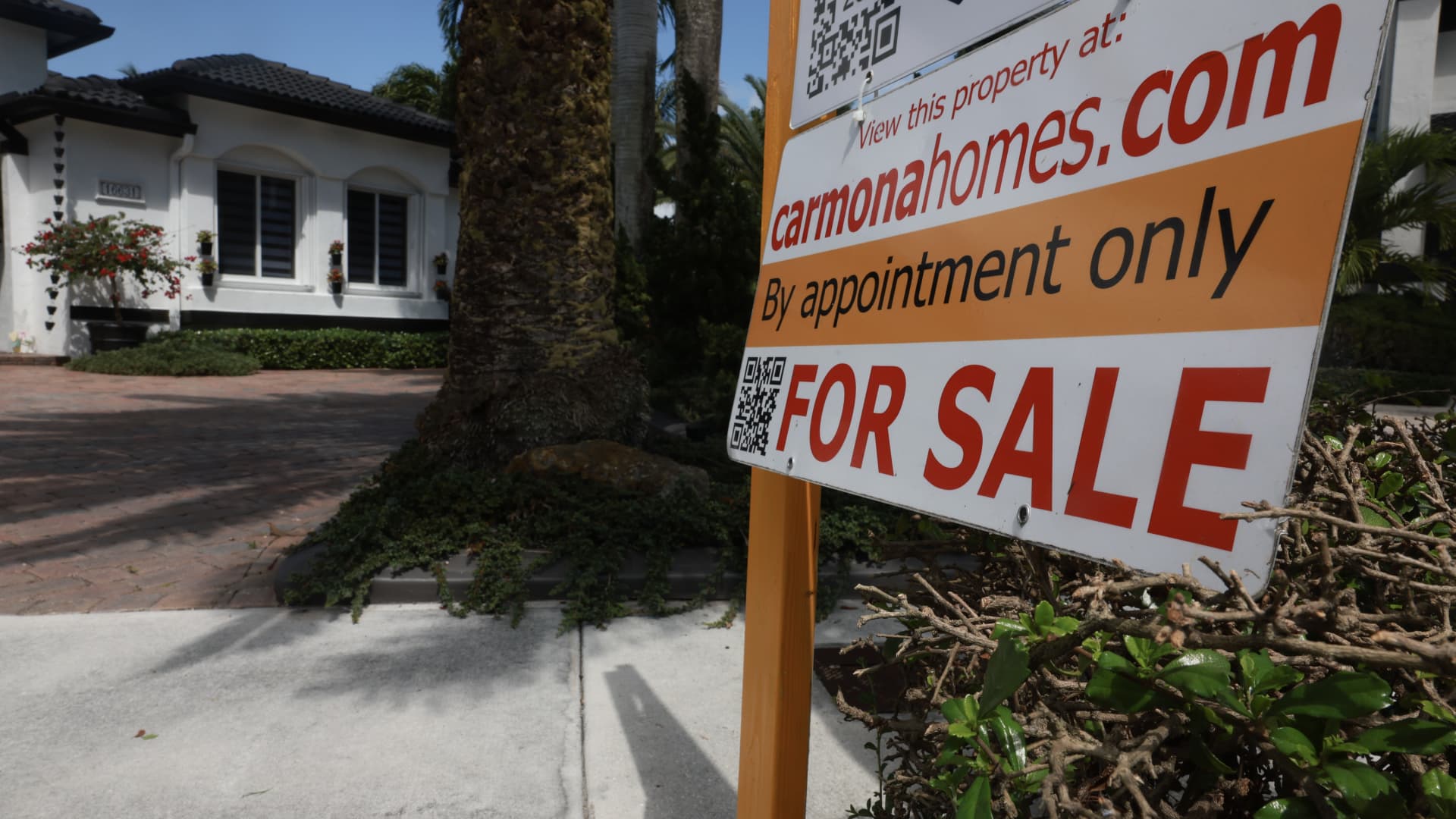The usually busy spring housing market is underway, but mortgage demand isn’t moving. Application volume was essentially flat last week, dropping 0.7% compared with the previous week, according to the Mortgage Bankers Association’s seasonally adjusted index.
The average contract interest rate for 30-year fixed-rate mortgages with conforming loan balances ($766,550 or less) decreased to 6.93% from 6.97%, with points decreasing to 0.60 from 0.64 (including the origination fee) for loans with a 20% down payment.
Applications to refinance a home loan fell 2% for the week and were 9% lower than the same week one year ago. Mortgage rates today are still about a half a percentage point higher than they were at this time last year, so recent borrowers have no incentive to refinance. Anyone with an older mortgage than that likely has a rate that is half of what is currently being offered.
Applications for a mortgage to purchase a home decreased 0.2% from the week before and were 16% lower year over year.
“Purchase applications were essentially unchanged, as homebuyers continue to hold out for lower mortgage rates and for more listings to hit the market,” said Joel Kan, an MBA economist in a release. “Lower rates should help to free up additional inventory as the lock-in effect is reduced, but we expect that will only take place gradually, as we forecast that rates will move toward 6-percent by the end of the year.”
Mortgage rates have basically moved sideways to start this week and are unlikely to change until next week, when more economic data is set to be released.
“Rates are driven by bonds, and bonds are waiting on the most relevant economic data to offer a comment on the path of inflation and the economy in general,” wrote Matthew Graham, chief operating officer at Mortgage News Daily. “If inflation falls a bit more or if the economy shows marked signs of weakening, it would tip the scales in favor of lower rates.”
